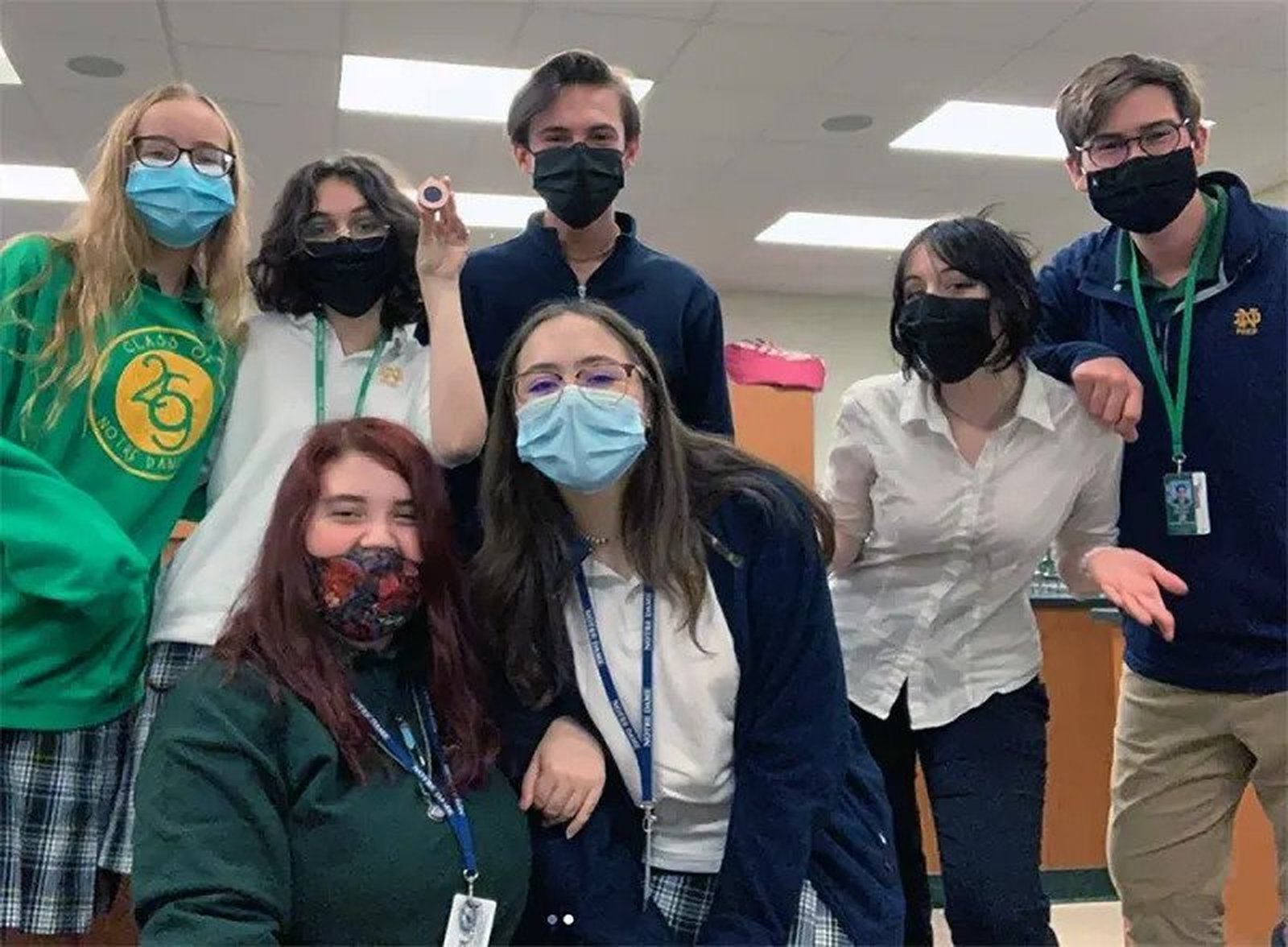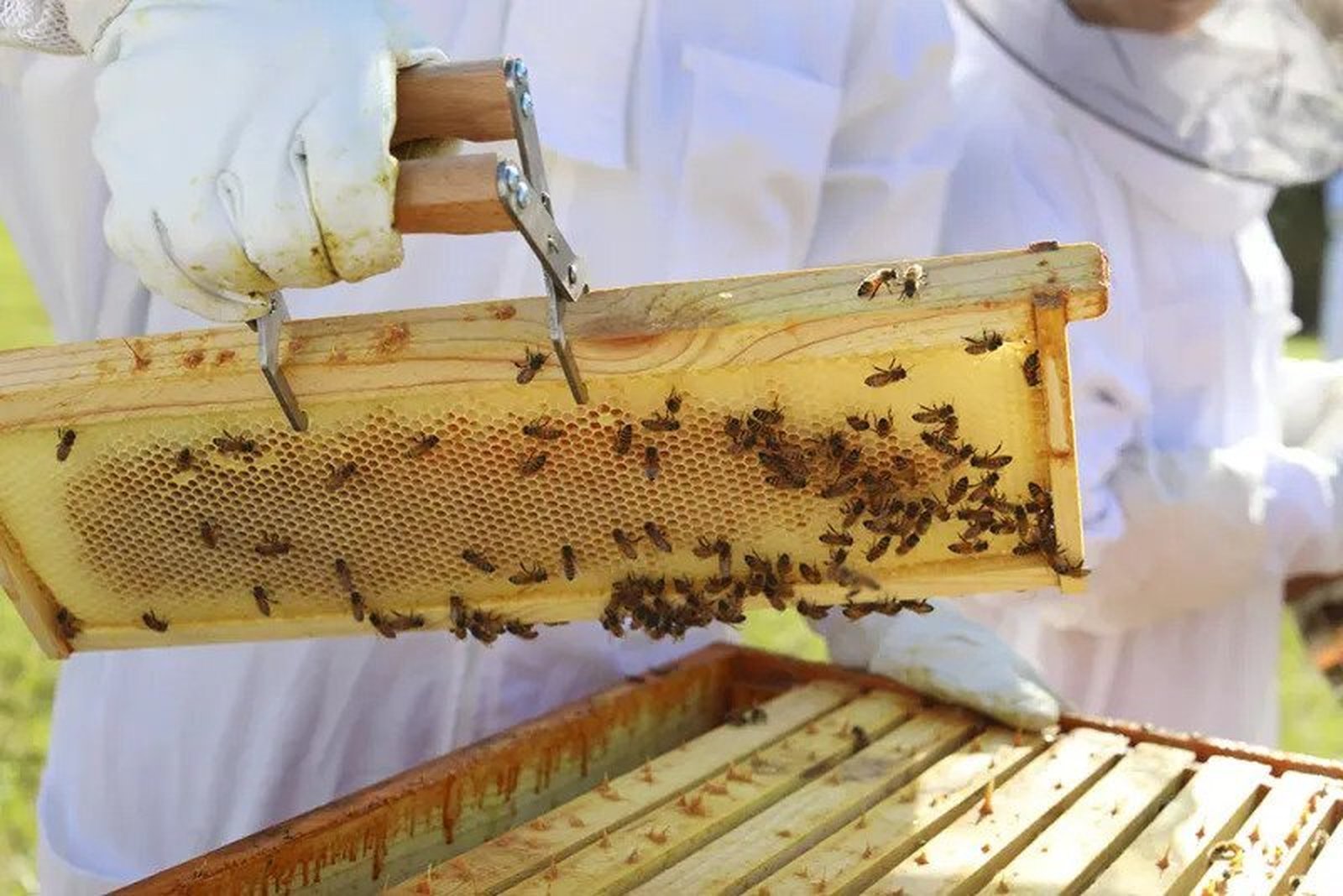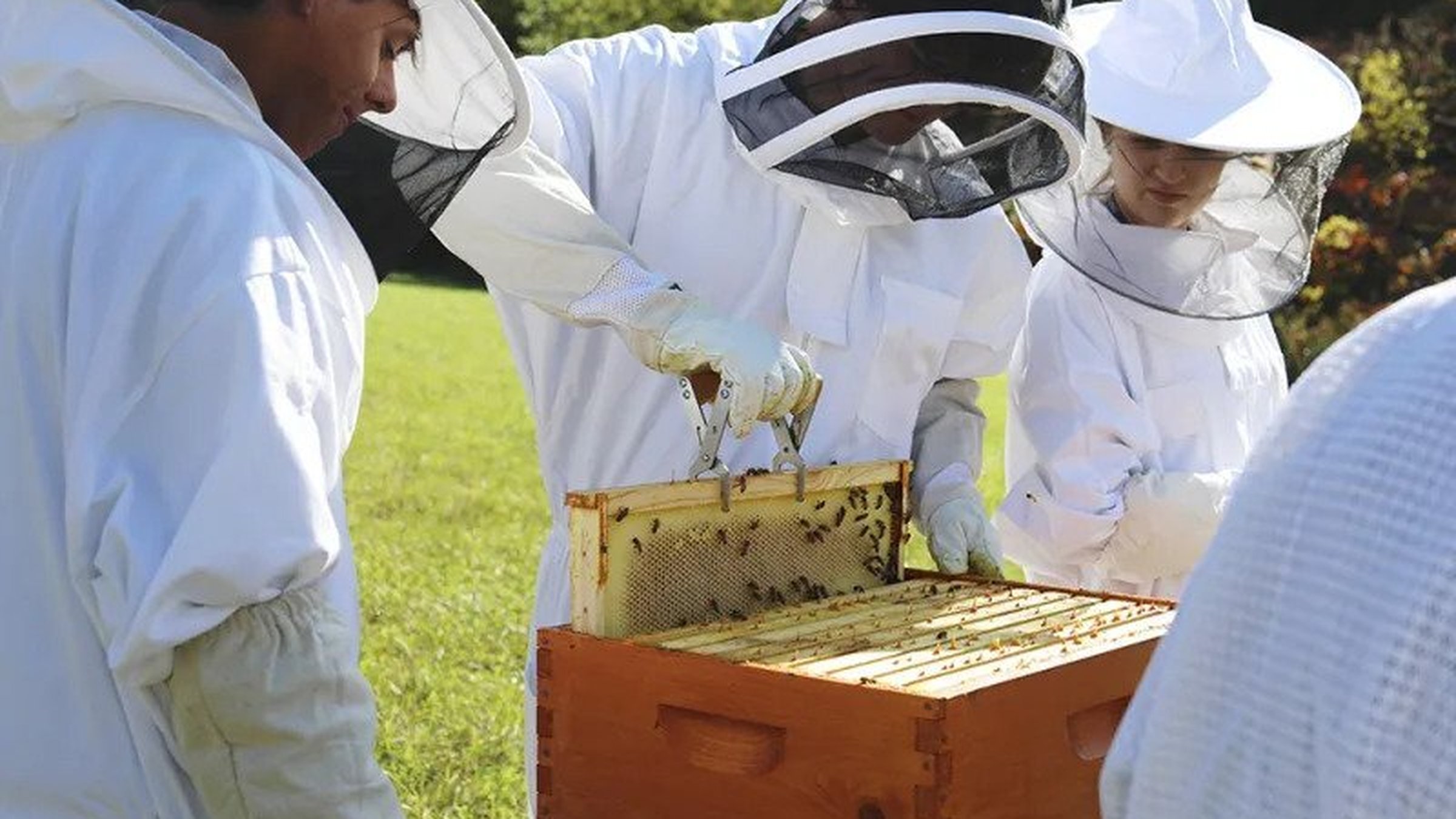Pontiac school's 'Sustainability Project' reinforces mission of environmental stewardship through campus biodiversity
PONTIAC — According to the United States Environmental Protection Agency, sustainability is based on a simple principle: Everything humans need for survival and well-being depends, either directly or indirectly, on the natural environment. To pursue sustainability is to create and maintain the conditions under which humans and nature can exist in productive harmony to support present and future generations.
Notre Dame Preparatory School's sustainability initiative, called "The Sustainability Project," teaches students how the Marist-run school's mission ties into environmental stewardship while increasing student involvement in developing biodiversity on the campus.
Tommy Fletcher, a rising senior at Notre Dame Prep, was vice president of the school's Bee Club during his junior year. While acknowledging the important role bees play in the overall health of the planet, Fletcher knows there is much more involved with environmental sustainability.
"I realize that the bees are just a small part of the whole, but once I became a part of the bee project here at NDP, I could more clearly see the bigger environmental picture and the large role sustainability plays in keeping our planet healthy," he said.

The EPA says the National Environmental Policy Act of 1969 committed the United States to sustainability, declaring it a national policy “to create and maintain conditions under which humans and nature can exist in productive harmony, that permit fulfilling the social, economic and other requirements of present and future generations.”
In the years since NEPA was enacted, the public’s interest in sustainability has broadened. According to the National Research Council, there are many additional drivers for sustainability. In the areas where the U.S. has seen considerable progress in sustainability, a common driver for sustainability efforts is citizens and other stakeholders concern.
In addition, sustainability practitioners are becoming more ambitious in their sustainability efforts and are working together to share best practices to ensure the greatest environmental, economic and social impact.
For Fletcher, he and the rest of the Bee Club's "sustainability practitioners" are using their time in the school's apiary in a couple of important ways.
"We maintain and harvest the multiple hives on campus," he said. "Our mission is to keep the bees healthy so they can produce the delicious honey we sell to help fund our activity, but we also promote the importance of a sustainable environment so the bees can thrive."

According to Sue McGinnis, who teaches science in the upper school and manages the Melissa Kozyra Greenhouse and Botany Learning Lab along with overseeing the apiary, the goal for her and her fellow science educators is to teach students how the school mission is directly related to protecting the environment.
She points to the three main tenets of the school mission and how they can be tied directly to the environment and its sustainability: to be stewards of God’s creation as Christian people; to take care of the earth and all inhabitants as upright citizens; and to provide opportunities for students to put their learning into action as academic scholars.
Fletcher hopes his academic work and interest in Notre Dame Prep's Bee Club will translate into more such work at the college level and beyond.
"I will begin applying to schools this fall and hope to join or begin a bee club at the university I choose," he said. "I am interested in the chemistry and math fields, but thanks to my experience at Notre Dame Prep, I could also see myself finding a way to include environmental engineering into the mix."
This article was originally published on the website of Notre Dame Preparatory and Marist Academy.










